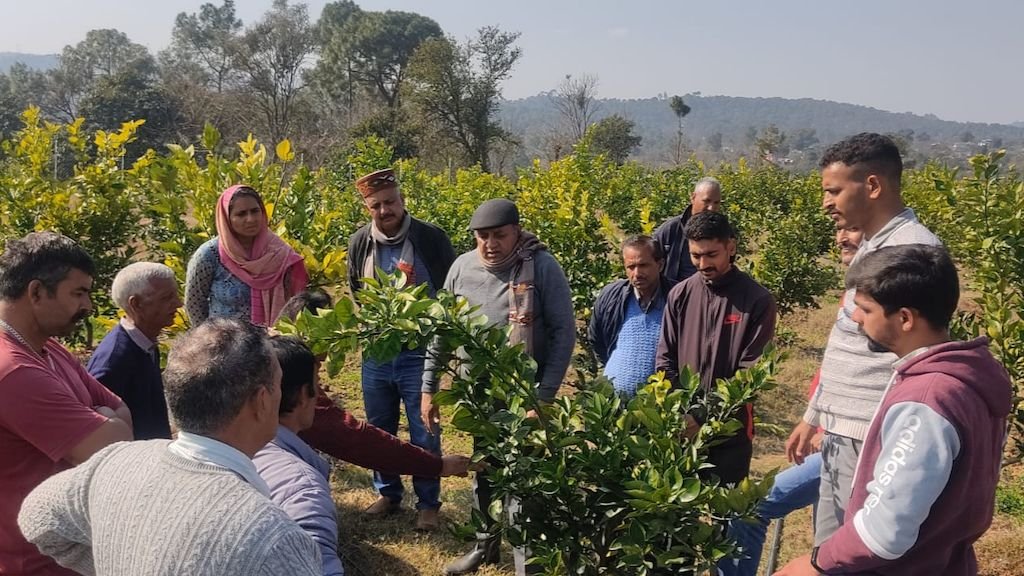ADB, India sign $130 million loan to promote horticulture in Himachal Pradesh
The project builds upon a pilot financed by ADB’s project readiness facility which demonstrated the subtropical horticulture production of over 200 hectares
The Government of India and the Asian Development Bank (ADB) signed a $130 million loan to increase agricultural productivity, improve access to irrigation and promote horticulture agribusinesses to raise farmers’ income in the state of Himachal Pradesh.
The signatories to the Himachal Pradesh Subtropical Horticulture, Irrigation, and Value Addition Project were Rajat Kumar Mishra, Additional Secretary, Department of Economic Affairs, Ministry of Finance, for the Government of India, and Takeo Konishi, Country Director of ADB’s India Resident Mission, for ADB.
After signing the loan agreement, Mishra stated that improving subtropical horticulture in the southern areas of Himachal Pradesh, hitherto dependent on temperate horticulture in northern areas, offers opportunities for crop diversification, climate adaptation and more equal economic and social development across the state’s rural areas. Supporting horticulture value chains will also boost the subsector’s contribution to the country’s development and food security.
“The project builds upon a pilot financed by ADB’s project readiness facility which demonstrated the subtropical horticulture production over 200 hectares and prepared the draft water user association (WUA) act and the draft state horticulture development strategy,” said Konishi.
The project interventions will help increase the income and resilience to the effects of climate change of at least 15,000 farm households across 7 districts of the state namely Bilaspur, Hamirpur, Kangra, Mandi, Sirmour, Solan, and Una. These households have stopped farming or have reduced their farming areas because of a lack of irrigation facilities and crop damage by wild and stray animals.
The project will improve on-farm irrigation and water management in about 6,000 hectares of farmland by rehabilitating or building new irrigation schemes and strengthening the capacity of WUAs for micro-irrigation management through joint efforts from the state’s Jal Shakti Vibhag (Water Resources Department) and Department of Horticulture (DOH).
The project will also help create an ecosystem to enhance farmers’ access to markets of subtropical horticulture. The farmers will be organised into cluster-wide community horticulture production and marketing associations (CHPMAs) and district-wide CHPMA cooperative societies. CHPMA apex institution, a farmer producer company (FPC), will lead state-wide agribusiness development with the aim of ensuring profitability and access to markets of subtropical horticulture. The FPC will handle business plan development; agribusiness promotion; and designing value-addition facilities such as sorting and packaging facilities, and storage and collection centres. It will also assist CHPMAs in managing these facilities.
The project will also modernise public and private subtropical horticulture nursery facilities for improved plant health, and boost beneficiary farmers’ access to information and communication technologies, and other digital agri-technology systems for real-time farm advisories and better CHPMA management.
The project builds upon a pilot financed




